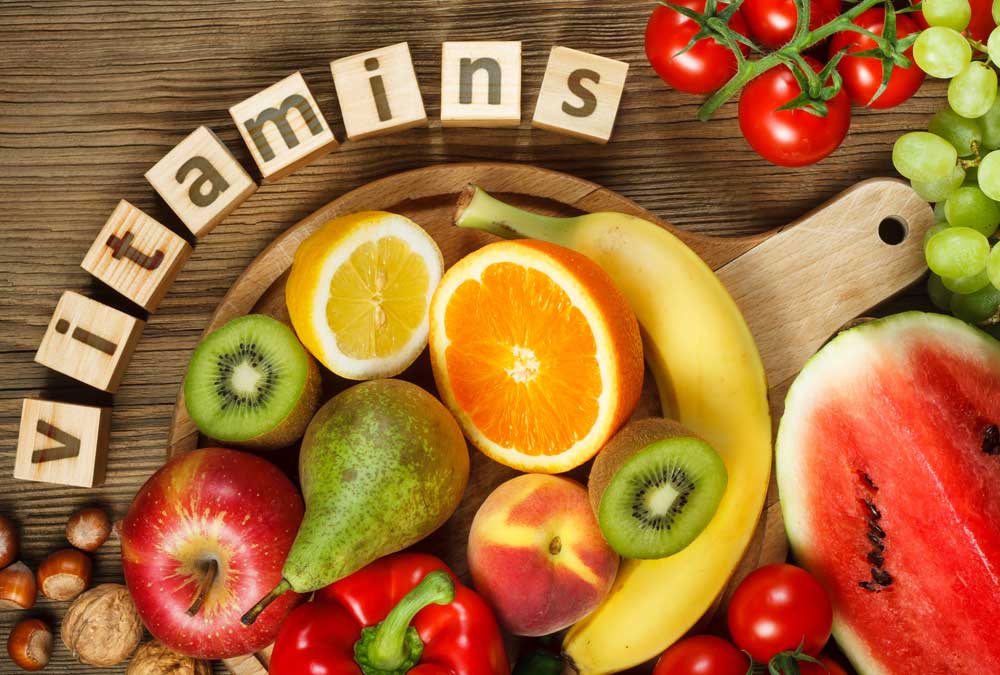Mon - Fri 9.00 - 17.00
Call us +1 (888) 825-9321

The human body needs a variety of nutrients to work properly. Among these nutrients, vitamins play a key role. Both men and women need vitamins, but their bodies are different. That’s why women need specific vitamins that are essential for their health.
Your body cannot produce all the nutrients you need, so you have to get them from food. A healthy diet that includes plenty of fruit and veggies should be able to provide the body with the daily recommended intake of vitamins and other nutrients, but sometimes women may need the support of supplements.
Researchers estimate that up to 30% of pregnant women suffer from vitamin deficiencies, and 75% have a deficiency in at least one vitamin. Different ages have different needs when it comes to vitamins, but a lack of vitamins can have severe consequences, including issues during pregnancy and after, risk of infections, and a weak body that struggles to recover from diseases.
What Are the Best Vitamins for Women?
Where Can You Get These Vitamins?
Symptoms of Vitamin Deficiencies and Risk Factors

It is crucial to provide the body with many different vitamins that can help specific functions, but some vitamins for women are more important than others. So, what are the best vitamins for women?
Vitamin A is essential for tissue repair. It supports the immune system, promotes bone health, and keeps the skin healthy. Beta-carotene, the precursor of vitamin A, aids in the prevention of cancer and boosts eye health.
B vitamins prevent fatigue and support brain function. They also play a key role in women’s metabolism because they work with other vitamins to transform what you eat into fuel for the body.
Vitamin C helps the body fight colds and infections. It may reduce the risk of cancers and protect against eye diseases. Vitamin C supports the production of neurotransmitters and acts as an antioxidant, boosting the immune system.
Vitamin D keeps bones and teeth strong by regulating blood levels of calcium and phosphorus, which strengthen bones. You can get the majority of your vitamin D from sun exposure. Many people suffer from vitamin D deficiency because they spend most of their time indoors, especially in winter. Vitamin D3 is also essential for brain functions because it regulates mood. Try to spend at least 15 minutes outside every day to ensure the body gets enough vitamin D.
Vitamin E acts as an antioxidant, protecting cells and fighting free radicals. It also boosts muscle strength, regulates cholesterol levels, and balances hormones. Vitamin E improves vision and may also help to prevent Alzheimer’s disease. This vitamin is especially important for women because it can reduce PMS symptoms.
Vitamin K is crucial for heart health because it inhibits excessive bleeding and may prevent heart disease, which is the leading cause of death among women in the United States. Several studies investigated the role of vitamin K in cardiovascular health and found that vitamin K may lower the risk of heart diseases particularly in chronic kidney disease populations.
You can get vitamins from food, especially if you follow an omnivorous diet. If you are vegetarian or vegan, you might want to consider taking supplements to ensure your body gets all the vitamins it needs.
A – beef, eggs, fish, spinach, carrots
B1 – lean meats, nuts, whole grains
B2 – milk, cheese, yogurt, broccoli
B3 – meat, fish, mushrooms, avocado
B5 – chicken, broccoli, mushrooms
B6 – meat, fish, poultry, avocado, nuts
B7 – eggs, soybeans, whole grains
B9 – broccoli, asparagus, legumes
B12 – meat, fish, eggs, milk, cheese
C – citrus fruit, potatoes, broccoli, spinach
D – salmon, fortified dairy products
E – leafy green vegetables, mango
K – broccoli, spinach, kale, cabbage

There are specific symptoms and risks that signal vitamin deficiency.
Reproductive age and menopause represent delicate periods in a woman’s life, when it is crucial to pay attention to nutrition.
Deficiencies can be passed from mothers to children, and children of women who suffer from deficiencies are more likely to get infections and diseases and experience cognitive and developmental issues. Women who are preparing to have children need to take extra care of their food habits and counter nutritional deficiencies to maintain a healthy body in preparation for pregnancy. Vitamins lower the risk of issues during pregnancy and reduce the risk of birth defects and diseases. In addition, milk production is affected by nutrition. For all these reasons, it is important that women in reproductive age think about their health as future mothers and take all the necessary steps to ensure their children’s health.
Studies showed that women in postmenopause are more likely to experience bone fragility, and the risk of osteoporosis is higher. Research concluded that vitamin D treatment may reduce the risk of developing this disease and may also help prevent cancer, cardiovascular disease, diabetes, infections, and autoimmune disease. Women in postmenopause who lack vitamin A and C are also at greater risk of losing their vision. Aging can expose women to a variety of diseases as the body becomes more fragile—vitamins can help to keep the body young and strong.
Glad to be one of the visitors on this awesome site : D.
Thank you for visiting our site!
I just want to mention I’m all new to blogging and site-building and honestly liked you’re web page. Likely I’m planning to bookmark your blog . You certainly come with incredible well written articles. Bless you for sharing your webpage.
Thank you!
Thanks Ronald!